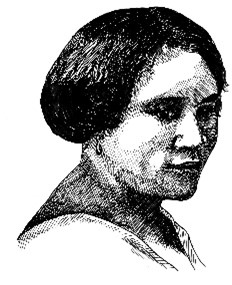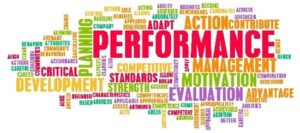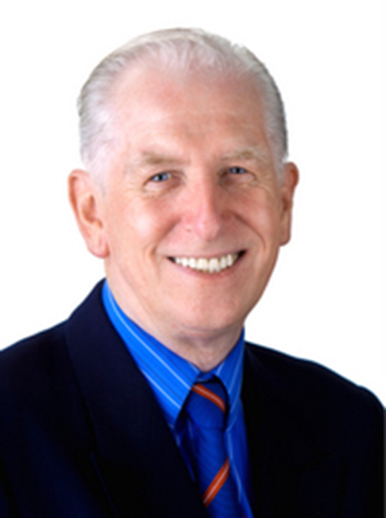By Dr Charles Margerison
Psychologist
Founder of Amazing People Worldwide
To what extent should schools be educating students on self-understanding and development?
The traditional curriculum focuses on examined subjects like mathematics, physics, literature, geography, history and music.
In contrast, during the whole of my primary, secondary and tertiary education, I cannot remember being asked to write about myself and how I could improve through self-understanding.
Therefore, I have become involved in character and wellbeing education. In particular, I have designed various resources to help students build their strengths through confidence, resilience and self-understanding, which are available at Amazing People Schools.
Students can learn from the life stories of amazing achievers who they hear about in their academic lessons. It is important that students learn how people like Einstein, Seacole, Michelangelo, Kato and other social leaders overcame challenges in order to succeed. Their lives are stories of character in action.
 Vivaldi, the great musician, overcame many difficulties. At his birth, a priest was called because he was very weak, and his parents thought he would die. During his childhood, he was frequently ill and not able to run and play with other boys. His father gave him a violin, and that is where he developed confidence and ability. Today, we celebrate his musical achievements, although during his life he had many problems.
Vivaldi, the great musician, overcame many difficulties. At his birth, a priest was called because he was very weak, and his parents thought he would die. During his childhood, he was frequently ill and not able to run and play with other boys. His father gave him a violin, and that is where he developed confidence and ability. Today, we celebrate his musical achievements, although during his life he had many problems.
 He was not the only one. Beethoven realized he was losing his hearing when he was only 28. The condition became worse, and fifteen years later he lost the ability to hear his own music, despite the fact he was still composing.
He was not the only one. Beethoven realized he was losing his hearing when he was only 28. The condition became worse, and fifteen years later he lost the ability to hear his own music, despite the fact he was still composing.
 Sarah Breedlove was born, in 1867, to parents who had been slaves. By the age of six, she was an orphan as both her parents died. Even though she had received very little education, Sarah was determined to make the best of her life, despite having a major hair loss problem. She decided to establish a business to help other women with hair care and changed her name to Madam Walker. Through franchising, she employed several thousand women, and also advised them on financial issues.
Sarah Breedlove was born, in 1867, to parents who had been slaves. By the age of six, she was an orphan as both her parents died. Even though she had received very little education, Sarah was determined to make the best of her life, despite having a major hair loss problem. She decided to establish a business to help other women with hair care and changed her name to Madam Walker. Through franchising, she employed several thousand women, and also advised them on financial issues.
There are many examples of people who through self-understanding and character development made major contributions. Students find it both interesting and inspiring to learn how people overcame disadvantage and barriers.
Therefore, it is important that we help all students understand the science of self-development. It is not a new subject. Philosophers like Aristotle, Socrates and Plato outlined ways to improve and develop a better life. However, it is only recently that we have had scientific measurement to provide feedback. As a result, we have developed better ways and means of keeping fit through regulated exercise and balanced eating.
The one area that is still of major concern is mental health. This is particularly so amongst students who, because of their age, have little experience of dealing with social emotional issues. Many schools now recognize student mental health as a focus for attention and employ trained counsellors. However, that is remedial. We need a science of self-development that is proactive to reduce mental stress.
Our work supports the Positive Psychology approach introduced by Seligman, which focuses on emotional engagement with others to accomplish an important purpose. That is what amazing people have done through the ages. Although they were not formally trained in psychology, they used processes which are now recognized as those contributing to wellbeing.
My analysis of amazing achievers indicates the following four areas to be of particular importance:
 Purpose – amazing achievers discovered an important purpose. For some, it was a political or spiritual purpose, for others it was a business and career ambition or a humanitarian purpose.
Purpose – amazing achievers discovered an important purpose. For some, it was a political or spiritual purpose, for others it was a business and career ambition or a humanitarian purpose.Therefore, what should we include as an integral part of the curriculum on the ‘A Science of Self-Development’?
 Language – It is important that students are introduced to, and use, the language of achievement. That starts with setting personal goals each week, and regularly checking the results.
Language – It is important that students are introduced to, and use, the language of achievement. That starts with setting personal goals each week, and regularly checking the results.A Science of Self-Development comes through trial and error via low-risk assignments. On each one, the students should be given time to discuss with other peers what they learned from doing the tasks and how they can improve.
It all sounds very simple. The problem is that little time is given to the learning process. Once a task is completed the inclination is to rush to the next one. There needs to be reflective time built in for discussion with those involved, focusing on what can be done better next time.
A Science of Self-Development is a subject that all schools should put on the agenda. We are supporting that via our www.amazingpeopleschools.com resources.
After all, the most important question is what should I do to improve?
Margerison C.J. – If Only I Had Said – Mercury Business Books.
Margerison C.J. – Amazing Careers – Amazing People Club – ISBN: 9781921629044.
Seligman, M. E. P. (2011). Flourish: A visionary new understanding of happiness and well-being. Free Press.

Dr Charles Margerison, President and founder of Amazing People Worldwide, is a Psychologist. He is also President of Amazing People Schools. Dr Margerison has consulted widely for major organizations in the fields of organizational and educational psychology. He was previously Professor of Management at Cranfield University, UK, and the University of Queensland, Australia. He founded Amazing People Worldwide in 2006 and is supported by a dedicated global team. He previously co-founded Emerald Publications, and Team Management Systems and has authored more than 30 books. Dr Charles is also the creator of ‘Can Do Kids Worldwide, a virtual music group that helps students to learn about countries and cultures through music. He has also developed Imagineland, for early learners. You can follow him on Linked in .
For more information, please email info@amazingpeopleworldwide.com
Websites:



Copyright © 2021. Amazing People Worldwide.
All Rights Reserved.
This site is protected by reCAPTCHA and the Google
Privacy Policy and Terms of Service apply.



